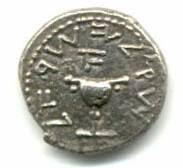Steve Libert went looking for buried treasure but may have found something nearly as valuable -- history.Never mind that without Libert, no one would even know it was there to be protected.
He stumbled upon what he believes is the most important archeological find in Michigan history, the 330-year-old Griffon shipwreck. The long-sought vessel sailed by famed French explorer La Salle was one of the first ships to cross the Great Lakes.
But like Robert La Salle, another star-crossed adventurer who searched for one thing but found another, Libert's quest has encountered turbulent waters.
He's fighting Michigan over the right to salvage the shipwreck's watery grave in northern Lake Michigan. France joined the fray Jan. 30 by staking claim to the site.
The sea skirmish carries heavy repercussions in Michigan, which borders four Great Lakes and has more coastline, 3,165 miles, than any state but Alaska. A federal law that gives Michigan ownership of 1,500 shipwrecks in state waters discourages entrepreneurs from discovering the vessels and their rich history, divers said.
"This is one of the most sought-after ships in the world," Libert said. "The state should be working with us, not against us."
The Griffon shows the folly of the federal rule, said divers.
If it wasn't for Libert, the prized ship would have remained buried under three centuries of sand, silt and history, they said.
Its possible discovery could open a long-shuttered hatch to the earliest days of the European settlers, helping researchers learn what the times and people were like by providing a snapshot of the era.
Federal law defended
But state officials defend the federal law, saying it allows Michigan to protect the shipwrecks from being plundered by profiteers. "They shouldn't be plucked for profit," said Matt Frendewey, a spokesman for the Michigan Attorney General's Office. "They should be protected so future generations can enjoy them."
If they doubt it is really there, then what claim can they make to prevent Libert from exploring the site?
. . .
Despite its modest attributes, the importance of the Griffon was shown by the discovery of another La Salle ship off the coast of Texas in 1995.
The Belle, which sank seven years after the Griffon, yielded a rich bounty, a million artifacts that allow researchers to reach across 300 years of history.
Among the items: skeletal remains, brass Jesuit rings, wooden lice combs, three-pronged forks, an unbroken wine bottle, three bronze cannons with the crest of King Louis XIV.
"The Griffon is the jewel of the shipwreck search community," said Wayne Lusardi, Michigan's maritime archaeologist. "Many people have been looking for it many years."
Finding the Holy Grail of shipwrecks was hardly on Libert's mind when he began scuba diving 30 years ago.
An intelligence analyst with the Navy, the 55-year-old resident of Herndon, Va., near Washington, once searched for wrecks of ships that carried gold.
Always intrigued by the long-lost Griffon, he began reading the journals of a La Salle associate and believed the ship had foundered somewhere off the coast of Escanaba in the Upper Peninsula.
Diving near Escanaba in 2001, Libert was swimming through water so murky that visibility was 3 inches.
Nearly 100 feet below the surface, he bumped into a wooden pole protruding from the lake bottom.
"I had my hands out, like I was walking in the dark, when suddenly I hit this thing," he said. "I couldn't figure out what it was."
He now believes the mussel-covered timber is the bow tip of the Griffon.
He retrieved a thumb-sized sliver of the wood and conducted a carbon-dating test, which showed a 33 percent chance that it came from the 17th century.
Dispute drags on
When Libert tried to win the right to salvage the Griffon, he ignited a turf battle with Michigan that has been as tempestuous as any Lake Superior gale. The state says federal law gives it ownership over shipwrecks in its waters.
Libert said international law awards possession to the owner, which would be France because the ship sailed on behalf of the French crown. He has France's permission to salvage the site.
During a four-year legal battle in federal court, a judge has tried to get Libert and Michigan to work together on identifying the ship.
But working together is the last thing on their minds.
Libert surrendered the wood sliver to Michigan only after the state threatened to obtain a federal warrant against him. He told the state the location of the wreck only after being ordered to do so by the federal judge.
As for Michigan, it threatened to charge Libert with a crime if he extracted any more material from the wreckage.
State has doubts
After examining the site in October, the state said it found only the wooden pole and doubts the Griffon is there.
During the fight, Libert has enlisted a growing number of allies, including France, the city of Charlevoix and the Field Museum in Chicago.
"I'm at the point where I'm now on the attack," he said. "I won't sit back anymore."
Good luck to Liebert, it's hard fighting against an organization with unlimited resources but with luck he will have found the historic Griffon. Assuming it is the Griffon, Liebert will have made history with this find.

No comments:
Post a Comment